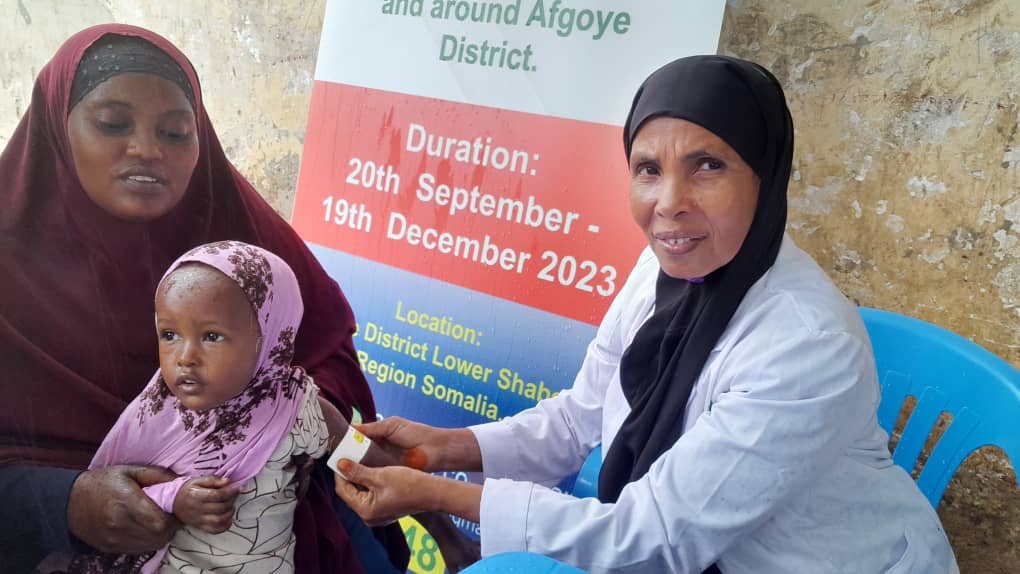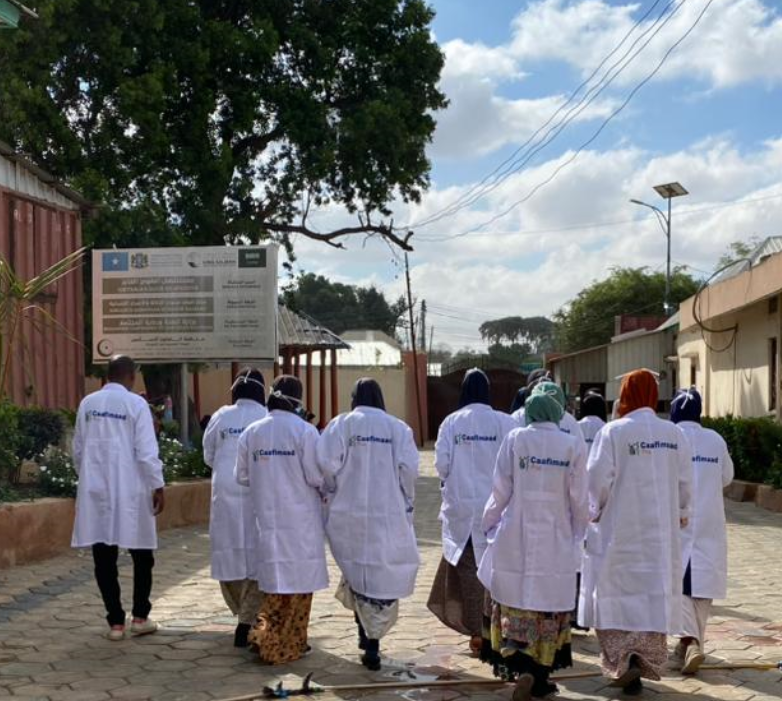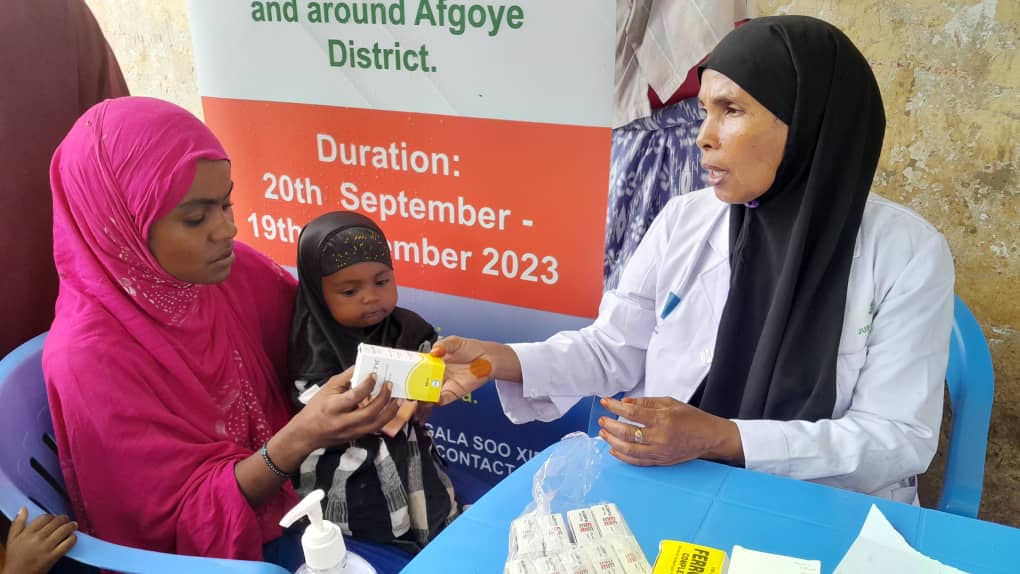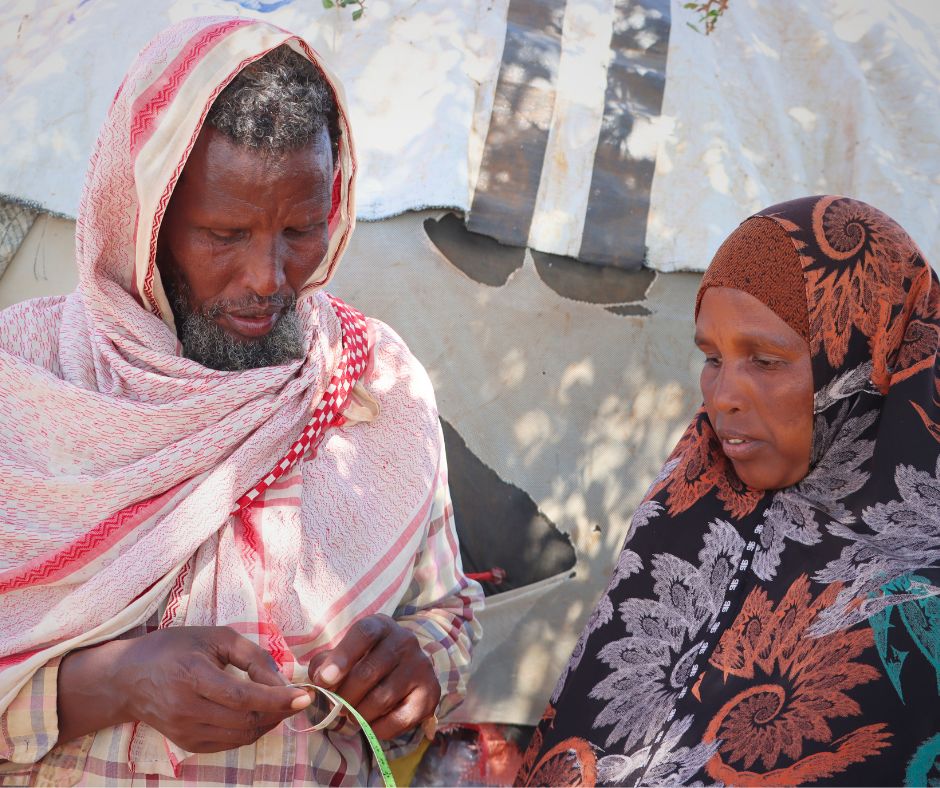Asha Muuse finds joy in witnessing her baby, Nuura, smiling and actively engaging in play. It is a relief for Asha, considering Nuura’s recent battle with pneumonia, which had limited her ability to enjoy playtime in their new home in Afgoye. The family had to relocate approximately 95 kilometers from Qoryoley in the beginning of 2023 due to devastating droughts that severely impacted their primary source of livelihood—farming.
According to recent assessments by Action Against Hunger in Somalia, climate change and conflict are the main drivers of hunger in the country. Furthermore, the latest Food Security and Nutrition Analysis for Somalia (FSNAU) report shows that over 3.7 million people in Somalia currently face Crisis or worse (IPC Phase 3 or above) levels of food insecurity. This number is expected to increase to 4.3 million people, including 1.5 million children under the age of five who may suffer from acute malnutrition and require immediate assistance.
To address this crisis, the European Union Civil Protection and Humanitarian Aid (EU ECHO) has allocated funding to the Caafimaad Plus Consortium. The consortium, through its member organization Juba Foundation, has deployed mobile teams in the area to deliver integrated life-saving emergency assistance to the affected population. These mobile teams provide critical health and nutrition support, as well as protection services, to the most vulnerable populations in hard-to-reach areas around Afgoye district.
Despite financial hardships, Asha Muuse remains a resilient and devoted mother to her three children, all under 2.5 years old, including a twin. With the support of the mobile teams, Asha’s daughter, Nuura, received a diagnosis and appropriate medication for pneumonia, leading to her recovery and improved well-being. Asha and other women also received Infant and Young Child Feeding Sessions within the community, educating them on best nutrition practices, and breastfeeding among other consultations.
“The fever has gone away, and Nuura now sleeps very well after the cough has subsided,” said a grateful Asha.
The 28 year-old’s strength in the face of adversity is truly inspiring. Her story reflects the positive impact of emergency aid provided by the Juba Foundation and its consortium partners, who are dedicated to improving the lives of those affected by drought, conflicts, and displacement in Somalia.

The Juba Foundation has established mobile teams to deliver essential healthcare services to underserved populations residing far from the Afgoye health facility. Moreover, the organization also operates the Afgoye General Hospital, where over a thousands of people access primary and secondary healthcare services daily. This intervention ensures that families in need have access to vital care closer without trekking longer distances. These teams focus on providing nutritional supplements, conducting malnutrition screenings, and offering counseling on Infant and Young Child Feeding (IYCF).
During mid-September and October, the mobile health clinic team reached 444 families living in Lower Shabelle, especially within the Afgoye district. Through these efforts, the Juba Foundation aims to create a healthier and more resilient community, reducing morbidity, mortality, and the risk of disease outbreaks in the region.








